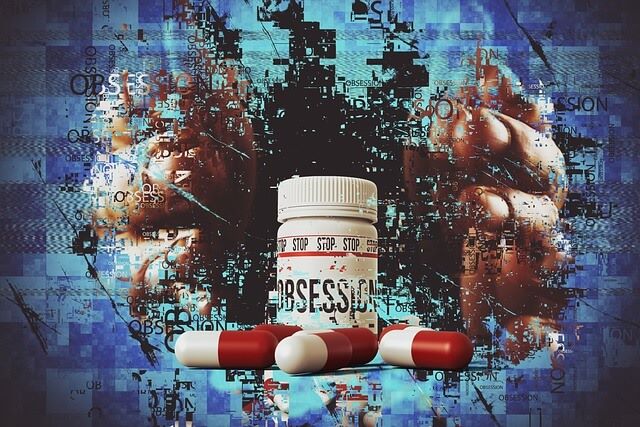
Table of Contents
If a substance affects the brain’s ability to control and regulate various body functions, it will have a severe negative impact on the body. Such conditions need urgent medical attention; otherwise, they may become fatal.
How Does the Human Brain Work?
The complex organ that induces various chemicals to regulate bodily functions is the responsibility of the brain. It also plays the role of cognitive functions like decision-making and storing memory and consciousness. The neurons in the brain are organized as circuits and networks. These neurons help to send information with the help of neurotransmitters. These send messages to the brain in the form of signals.
The reward system in the brain is developed to reinforce behavior that is needed for survival. This behavior, such as eating, exercising, meeting with loved ones, etc., activates a chemical named dopamine. Upon inducing this chemical, the individual may experience joy and satisfaction, thus encouraging them to indulge in it in the future.
Science of Addiction: How Drug Use Affects the Brain?
The drugs consumed will affect the signals communicated within various parts of the brain. Addictive drugs like cocaine can mimic excessive amounts of neurotransmitters, producing artificial dopamine. This excessive amount of happiness hormone creates intense pleasure or euphoria associated with cocaine use. This further leads to drug-seeking, thus reinforcing the behavior.
These drugs replicate the chemicals found in the brain, but they operate on neurons differently than a natural neurotransmitter, which causes aberrant messages to travel through the network. This will lead to the inability of the brain to make decisions and may lead to increased carving towards drugs.
Drug Addiction: Effect on Various Parts of the Brain
Drugs have the power to change key brain regions that are essential for basic survival and to trigger the compulsive drug use that characterizes addiction. Drug usage affects the following parts of the brain:-
- The basal ganglia helps to motivate pleasure-diving activities. It is the central node of the brain’s reward circuit. Drug use can excessively stimulate dopamine, which leads to euphoria. Over time, the brain loses its sensitivity and makes the individual hard to feel pleasure from anything except drugs. Continuous drug use leads to developing an addiction.
- The extended amygdala, which regulates behavior, emotions, and learning, is affected and changed by addictive substances, leading to elevated emotions and hypersensitivity.
Understanding Drug Use and Addiction: How Substance Use is Linked to Pleasure
The pleasure or high feeling is still not understood correctly. It likely involves a burst of chemical compounds like endorphins and other neurotransmitters in the reward circuitry area. Indulging in drug use leads to a larger surge of these chemicals compared to naturally induced dopamine.
How dopamine reinforces Drug Misuse and Addiction
The reward circuitry helps to encourage habits that make an individual happy. One of the neurotransmitter chemicals that play a major role is dopamine. When doing certain activities such as eating, socializing, and engaging in sexual activities, there is an increase in this happy hormone, making people feel good and remembering it for the future.
Drugs mimic and create a huge surge of happy hormones at normal levels. This makes the brain relate drugs with pleasure, thus reinforcing the addictive behavior. Strong cravings can be triggered even when there are no drugs present—just by looking at objects or visiting locations that bring back memories of drug use. Even after years of abstinence, people may find it difficult to avoid drugs due to these long-term desires.

Why Drug Addiction is More Addictive than Natural Reward
When an individual uses drugs, it is like the brain getting used to loud noises instead of quiet ones. To cope with the pleasure that comes from drug use, the brain starts making fewer chemicals that make them feel good or reduces the parts that receive those signals. Gradually, their capacity to derive pleasure from naturally rewarding activities diminishes.
This adaptation clarifies why drug abusers eventually develop a flat affect, decreased motivation, and depressive or hopeless feelings. They can no longer take pleasure in the things that used to make them happy. In addition, they become addicted to narcotics to attain a minimal degree of reward. As the tolerance grows, it urges to use more and higher dosages of the medication to produce the same euphoric effects.
Essentially, an individual’s brain becomes accustomed to drug use through repeated use. So, enjoyable everyday activities no longer feel the same as they used to. They begin to depend more and more on drugs because they need them to feel happy at all. Things that people formerly enjoyed become boring as a result.
The Effect of Substance Use Disorder among Various Age Groups
Children
Due to the developmental stage of their brains, adolescents are particularly vulnerable to the harmful effects of substance addiction. Abuse of drugs and alcohol by teenagers can seriously harm the brain’s development and functionality. They will influence how they reason or approach problem-solving. They might be influenced by their friends to prepare themselves to experiment with drug effects.
Adults
When adults consume drugs, they have increased and severe effects on their bodies. They may experience extreme sadness and anxiety or even hallucinate unreal objects as a result of it. Adult drug users may find it difficult to maintain a career, get along with people, or avoid legal issues. All in all, it may greatly complicate their lives.
Old Age
Substance use might be particularly difficult for the elderly population. Drugs can impact them differently since their bodies are different. They may be taking additional medications that conflict with other substances. Drug use among older persons might occasionally result from feelings of depression, loneliness, or stress related to retirement. However, if they are ashamed or don’t know where to look for assistance, they might not ask for it. This can result in various developments in the individual going unnoticed, and there can be a delay in providing the treatment.
Dual Diagnosis: When Substance Use Disorder gets Associated with Issues Related to Mental Health
This is a unique challenge as the professional must carefully devise the treatment options. When an individual with an addiction to drugs is also affected by various mental health issues, then it is a complex condition called dual diagnosis. The person with depression may indulge in drugs to numb the feeling. Instead, it makes the issue worse in the long run, thus falling into the vicious cycle.
There are several forms of assistance available to assist in ending this cycle. Speaking with a professional, such as a therapist, might impart beneficial techniques for handling emotions. It’s acceptable for some people to require medication to feel better.
Meet people going through similar problems in support groups; they may be a fantastic source of understanding and encouragement.
Treatment for Drug Misuse and Addiction
Drug use and addiction are preventable and can be cured. Addiction treatment can be obtained by seeking help. This can be accomplished by obtaining expert assistance and support in the form of drug counseling or addiction psychiatry. Treatment programs and plans are created specifically for each person based on their requirements and obstacles. Substance abuse treatment are conventional and includes the following.
Addiction Treatment Involved in Rewiring and Adaptation of Brain
The goal of addiction treatment is to rewire and adapt the drug-affected brain. It consists of behavioral therapy, medication-assisted treatment, detoxification, and lifestyle changes. Techniques for brain stimulation and neurofeedback may also be applied. Counseling and peer support are essential for encouraging beneficial changes and emotional support.
Integrated Version: Treatment for Drug Addiction and Mental Disorders
In this procedure, people with both drug addiction and mental illnesses are treated together. This plan looks at both their mental health and addiction problems and uses different treatments, like therapy and medication. The goal is to help them stay healthy and improve in all areas of their lives.
FAQs
When the individual starts consuming drugs, many infectious diseases and organ damage can happen. On getting addicted, the risk associated with it will escalate and lead to damage to the nervous system and other chronic diseases,
The individual will showcase behavioral changes like aggression and change in the type of members in his social circle. They will also show an increased desire to consume alcohol.
The individual's chances of experimenting with the drugs will increase when under the influence of his peers who have already tried or want to try the effects of drugs.










